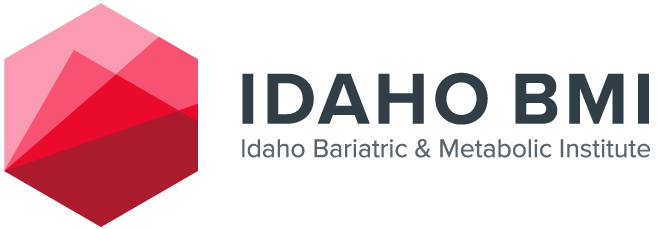We hear a lot about cholesterol from our doctors, we see commercials for it left and right, and it’s often regarded as bad. But that’s just not telling the whole story.
Cholesterol is Necessary for Health
If we didn’t have cholesterol in our bodies, we’d die. It’s a fundamental building block for cells and hormones, so why does it get this bad wrap?
For almost 60 years, the wide belief has been that high cholesterol levels drive heart disease, coronary artery disease, atherosclerosis and more. It is true that plaque along our arteries can result in these – but to say that cholesterol is the main driver of heart problems is flawed.
LDL (low-density lipoprotein) is widely regarded as a bad cholesterol (you’re told to have less of it), but it’s an incomplete description. HDL (high-density) is sometimes referred to as good cholesterol (you’re told you want more of it), because it’s thought that when it’s low, it’s associated with risk factors of developing diabetes, cardiovascular disease and more. So what’s wrong with these assumptions?
Dr. Brown says think about knees. He sees many patients at Idaho BMI and Everest Surgical Institute who have needed knee replacements. It would be easy to just say, based on all these people, knees are bad! A human knee is weak, let’s just replace everyone’s. LDL is just like that – it serves the very important function of delivering fat to be burned as fuel. The problem is when the LDL particles become damaged. That’s the bad cholesterol. But just having a higher than normal LDL level in the blood doesn’t necessarily indicate trouble’s coming.
So What Causes LDL to Go Bad?
Most of us know of rust, and may even know it’s when iron has been oxidized. Thing is, that same process is what damages LDL particles. They become oxidized. Then, the actual bodily damage comes from our cells not recognizing these damaged LDL particles. Eventually, the body reacts to the damaged particles as if they were foreign, and that triggers the immune system to attack it – just like it’s trained to do. Finally, that immune response is what creates the inflammatory build up on the walls of our arteries.
Saturated vs. Polyunsaturated Fats
Damaged LDL cholesterol results from eating too many carbs, sugars, processed foods, and something we’ve not touched on a lot – polyunsaturated fats.
You’ve heard of essential fatty acids, maybe omega-3s, and those are great. The problems are the inflammatory omega-6s and omega-9s, which (ironically) some health organizations actually recommend people eat more of.
You can test for your omega levels, and science shows the healthiest ratio of omega-6 to omega-3 is 1:1. But guess where Americans fall? 16:1 on average, of omega-6s to omega-3s. That’s far too much polyunsaturated fat.
Much like cholesterol, the common belief that saturated fats are bad for you stems from old, poorly-performed studies. More recent studies have shown no association between saturated fats and atherosclerosis, and Dr. Brown would even say saturated fats are the body’s preferred fuel.
What to Cook With, What Not to
This confuses some people, because some of the worst oils have “good” names in them (vegetable oils, seed oils). Even cheap, processed olive oils can be harmful.
Tests on these oils have shown they’re already oxidized, so your LDL particles invariably become damaged when you consume them. Saturated fats on the other hand, are much less likely to become oxidized. Healthy alternatives to inflammatory oils include butter, tallow and ghee.
Cardiologists and “Low” Cholesterol
It’s understandable why cardiologists stress lowering cholesterol. What they see every day are people with coronary artery disease and heart disease, so they’re about intervention, not prevention. This leads to the biggest question of the episode. What can we do proactively to reduce our bad LDL, and keep our good LDL? Dr. Brown suggests you lower insulin resistance and inflammation, by getting good sleep, sticking to a healthy diet and fasting.
Now what about when that annual check up comes, and you look at your cholesterol results with your doctor? The first thing is to not make any decisions based on one number (and there will be a lot of them). Instead, use those numbers to look for patterns. Dr. Brown likes looking at the ratio of triglycerides to HDL. You want triglycerides to be low and HDL to be high, because that is the indicator of insulin sensitivity, low inflammation and good LDL health – even if your LDL score is higher than normal range. In fact, this pattern suggests your body is doing a great job of burning fat as fuel.
The Final Word on Eggs
Dietary cholesterol affecting the cholesterol inside us is mostly a myth, and it’s why many recommend avoiding eggs, which are high in cholesterol. But the body is elegant, and fully able to regulate that. In fact, the American College of Cardiology and American Heart Association have dropped their recommendation to avoid eggs. Dietary cholesterol is simply not the thing they thought it was. Eggs are good!
In short, the human body is amazing. With so much going on inside it, it’s easy to forget the big picture. And that’s where the issue of cholesterol became a problem. It’s not that current beliefs are 100% wrong, they’re just incomplete. But thankfully, great science and easier access to information is improving our understanding more and more every day.
Brain Over Belly is available wherever you get your podcasts. Subscribe now for this episode on the microbiome, and others discussing weight loss, general health and longevity. Brain Over Belly, get it on Listen Boise today. What have you got to lose?
You May Also Like

